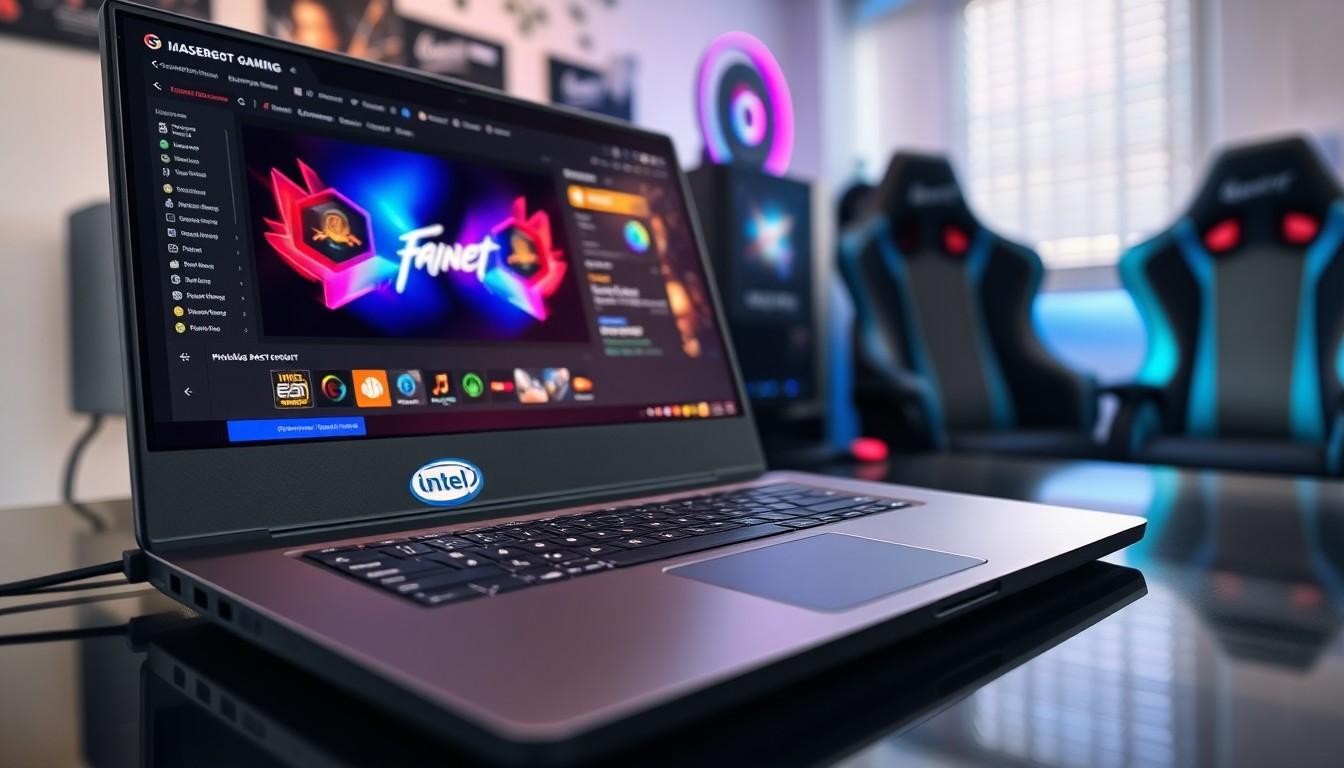In the fast-paced world of game development, having the right tools can make or break a project. Imagine trying to build a high-definition gaming universe on a potato—frustrating, right? A reliable game development laptop is the golden ticket to unleashing creativity and turning those wild ideas into interactive masterpieces.
Game Development Laptops
Game development laptops combine high performance with portability, essential for developers on the go. Specific features set them apart and enhance the game creation process. A powerful processor plays a crucial role, enabling quick rendering of graphics and smooth gameplay simulations.
Graphics cards must possess adequate memory and speed, allowing for real-time visual processing. Many developers prefer laptops with dedicated GPUs to handle demanding game engines. Ample RAM is necessary; 16GB serves as a standard minimum for multitasking and managing large projects efficiently.
Storage type impacts performance significantly. Solid State Drives (SSDs) provide faster load times compared to traditional Hard Disk Drives (HDDs). A combination of both can maximize space while ensuring quick access to essential files.
Screen quality merits attention. High-resolution displays with accurate color reproduction aid in developing visually appealing games. Additionally, a larger display enhances productivity, making it easier to work with detailed graphics and multiple windows.
Battery life also influences convenience. Longer battery life supports extended development sessions without frequent charging interruptions. Portability remains significant, making lightweight options more appealing.
Connectivity options facilitate collaboration and integration with various devices. Multiple USB ports, HDMI outputs, and Thunderbolt interfaces contribute to versatile setups, accommodating necessary peripherals and external displays.
Identifying the right laptop involves evaluating performance specifications, display quality, and additional features tailored for game development. The ideal machine fosters creativity and efficiency during all stages of the development process.
Key Features to Consider

Selecting the right game development laptop involves assessing several key features. Developers should prioritize aspects that enhance both performance and usability.
Processor and Performance
Processors play a crucial role in handling tasks swiftly. An Intel Core i7 or AMD Ryzen 7 processor ensures high performance for graphics rendering and complex computations. Opting for at least four cores improves multitasking capabilities, especially when running development software and game engines simultaneously. Clock speeds above 3.0 GHz often indicate better performance. Many developers benefit from laptops with thermal management systems to prevent overheating during extended sessions.
Graphics Card Requirements
Graphics cards are essential for rendering high-quality visuals in real-time. Look for dedicated GPUs like NVIDIA GeForce RTX series or AMD Radeon RX series. These graphics cards boost the machine’s ability to process complex graphics and support modern game development engines. VRAM of at least 6GB allows developers to render intricate details and maintain smooth gameplay. An ideal setup includes compatibility with game development tools such as Unity or Unreal Engine.
RAM and Storage Needs
RAM significantly affects multitasking and software performance. A minimum of 16GB is recommended for seamless operation, while 32GB benefits those using memory-intensive applications. Storage type impacts load times and file transfer speeds. Solid State Drives (SSDs) outperform traditional hard drives, providing quicker access to development assets and reducing wait times. Aim for at least 512GB of SSD storage to accommodate large game files and software installations while ensuring sufficient space for future projects.
Top Game Development Laptops of 2023
Choosing the right laptop can significantly enhance game development experiences. Several options cater to different budgets and performance needs.
Budget-Friendly Options
Several budget-friendly laptops excel in game development without breaking the bank. The Acer Aspire 5 combines an AMD Ryzen 5 processor and NVIDIA GeForce GTX 1650, making it suitable for indie games. The ASUS TUF Gaming A15 features a Ryzen 5 processor alongside 16GB RAM, providing ample multitasking capabilities. For those prioritizing storage and speed, the HP Pavilion Gaming Laptop offers a 512GB SSD and a decent NVIDIA GeForce GTX 1650 graphics card, addressing essential requirements for many developers. Each of these models offers valuable performance without exceeding a budget of $1,000.
High-End Models
High-end laptops deliver significant performance and advanced features for serious developers. The Razer Blade 15 boasts an Intel Core i7 processor and NVIDIA GeForce RTX 3070 graphics, ensuring seamless handling of complex graphics. Dell XPS 15 also stands out, featuring a powerful Intel Core i9 processor paired with an RTX 3060 GPU, creating an exceptional development environment. The ASUS ROG Zephyrus G14, equipped with an AMD Ryzen 9 processor, also makes a strong case with its robust performance. Expect to invest between $2,000 and $3,000 for these top-tier models, which provide cutting-edge technology and unmatched capabilities for game development projects.
Comparison of Popular Brands
Analyzing popular brands in game development laptops reveals significant differences in features and performance. Acer, known for affordability, provides solid options like the Acer Aspire 5, which balances performance and price for entry-level developers. ASUS offers the TUF Gaming A15, targeting gamers with durable build quality and strong graphics capabilities, making it a reliable choice for budding game creators.
Dell’s XPS 15 stands out as a high-end option, featuring a stunning 15.6-inch 4K display, powerful Intel Core i7 processors, and discrete NVIDIA GeForce GTX graphics. This laptop appeals to developers seeking a premium device for creating visually rich games. Razer, recognized for its sleek designs, presents the Razer Blade 15, which combines powerful performance with portability, making it popular among professional developers.
HP’s Pavilion Gaming Laptop offers competitive specifications at a budget-friendly price. This model delivers decent graphics performance, catering to indie developers without breaking the bank. Meanwhile, ASUS ROG Zephyrus G14 captivates serious developers with its AMD Ryzen 9 processor and NVIDIA GeForce RTX 3060 GPU, allowing seamless multitasking and demanding game projects.
Each brand excels in various areas, catering to different segments of the game development community. Selecting a laptop involves weighing performance versus budget while considering personal preferences. Brands like Acer or HP serve those on a budget, while options from Dell and Razer satisfy those seeking high-end performance. Understanding these distinctions helps in choosing a suitable game development laptop.
Game Development Jjourney
Selecting the right game development laptop can make a significant difference in a developer’s workflow and creativity. With a variety of options available, it’s essential to consider performance specifications that align with individual needs. Whether opting for budget-friendly models or high-end machines, understanding key features like processors, graphics cards, and RAM is crucial.
Investing in a reliable laptop not only enhances productivity but also ensures that developers can bring their creative visions to life without technical hindrances. By evaluating personal requirements and exploring the best brands in the market, developers can find the perfect laptop to support their game development journey.




